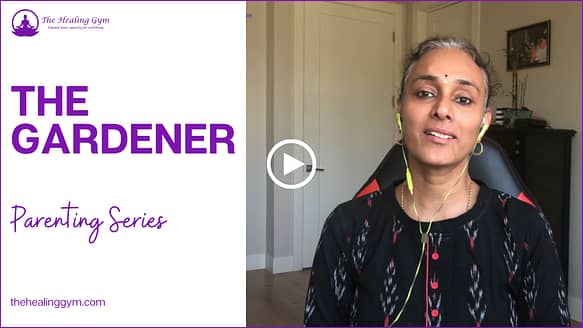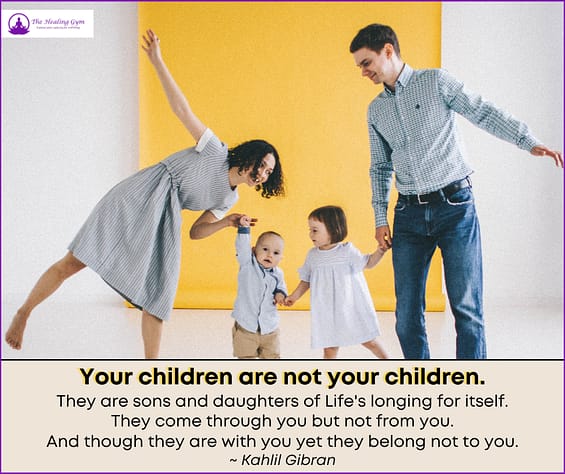As parents, we go through many situations where we experience bouts of intense worry and anxiety about our children. Kahlil Gibran, the Lebanese poet, reminds us not to have an attitude of ownership with your child; rather tell yourself that ‘my children have come through me. They do not belong to me.’

So what is the gardener philosophy? You know, as part of bringing up our children, many of us parents develop a deep attachment towards our children. In fact, some amount of attachment is really good. But when that attachment becomes excessive, that can become a little detrimental. And that is what Khalil Gibran calls it as a principle of ownership or the feeling that our children belong to us, or we own our children.
How do we know that we have the sense of ownership without children. So some of the ways that I feel that I can identify when I have the spirit or attitude of ownership is when we parents try to enforce our dreams or thrust our dreams onto our children, maybe something that we haven’t accomplished, we want our children to accomplish.
Again, another way to identify this attitude of ownership is when we feel we take things very personally, especially the mistakes or lack of accomplishments of our children, we take that very personally, and we feel that it’s a failure on our part that we were not able to do that. And again, another way would be, we worry incessantly about children, almost to a point of being obsessed about a child, you know, all constantly, our children are in our thoughts, and we worry about them too much. These are some of the ways that I identify for myself and say that, ‘Oh, this is I’m probably feeling that attitude of ownership of my child, and it’s time to step back a little.’
And what’s the right solution for this? Khalil Gibran gives the answer very beautiful in his code. And he says that all we have to do is to remind ourselves that our children don’t belong to us, they have come through us, they are not come from us, we are not the owners.

And I would add a little bit to say that we are like the trustees, or we are like the gardeners, our job is to just nourish the standard plants or tender saplings that we have brought in into our homes, to help them become the kind of healthy individuals that we want to become. And that’s what we do with, uh, with our plants in our garden, right? We tend them, we take care of them, we put the right soil the right amount of water, and expose it to the right amount of sunlight. But finally, sometimes even after all, the care that we give, the plant doesn’t do well, maybe it is attacked by weeds or insects. At that time, instead of taking things personally, we just step back and say, hey, what can I do about it right now? What should I do now, to ensure that the plant is able to bounce back to a state of good health? And that’s exactly what we need to do as parents, instead of getting too affected by it, sit back and say what can I do to help my child discover his or her unique potential and live their destiny that they have chosen to live?
It’s an it’s an attitude that we have to develop over time. It doesn’t come to us in an instant. There are some days when we have more of ownership. Some days we kind of step back and say ‘no, come on, my children don’t belong to me.’ I have to let them lead their own lives and step back and say, ‘I am a gardener.’ So this is a constant practice that we have to follow.
